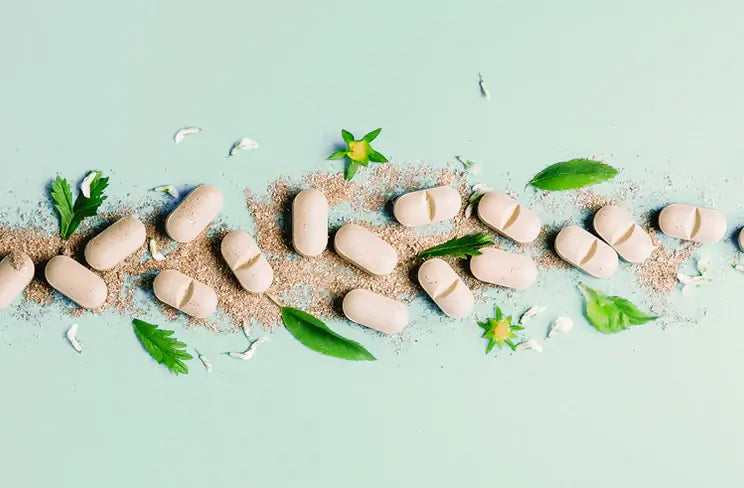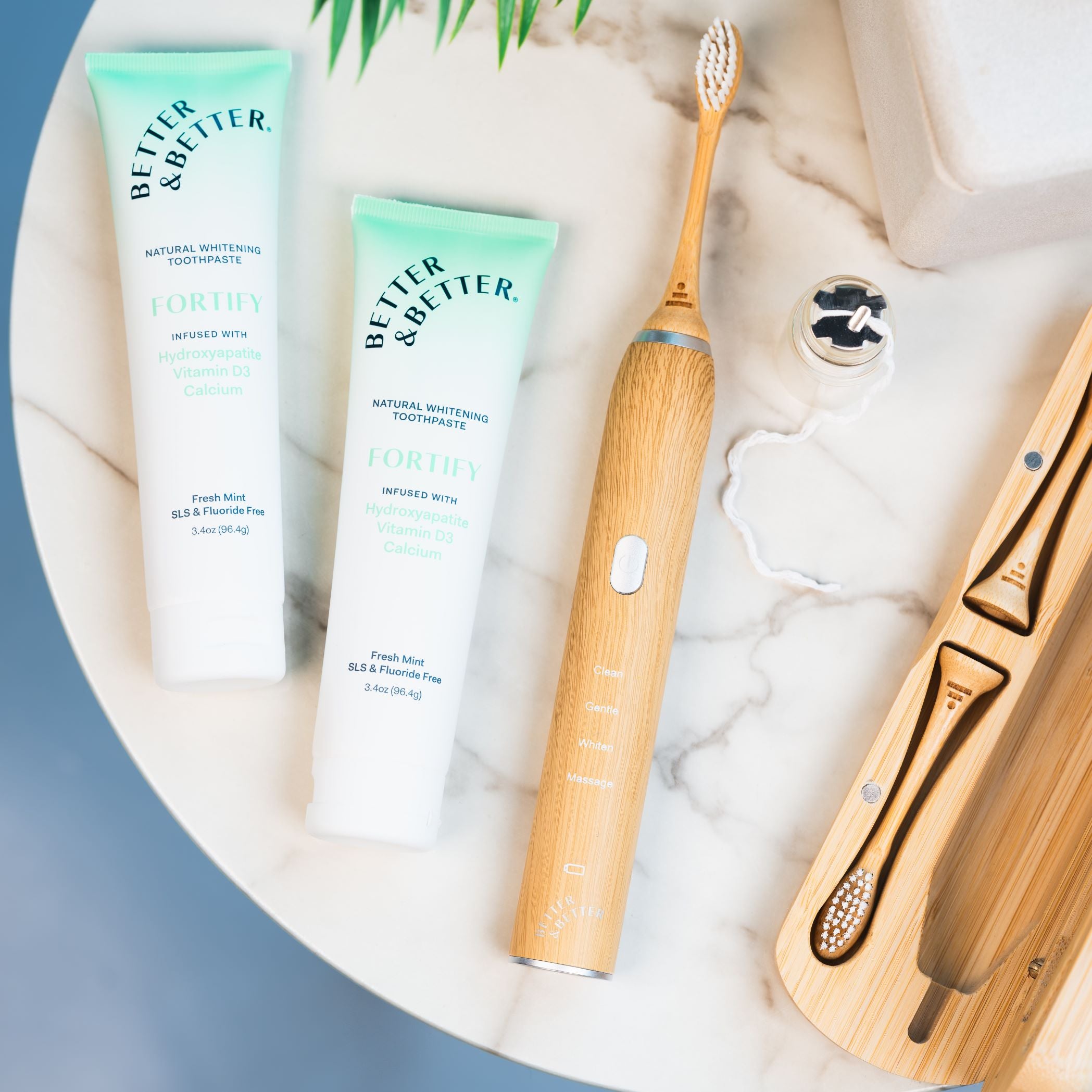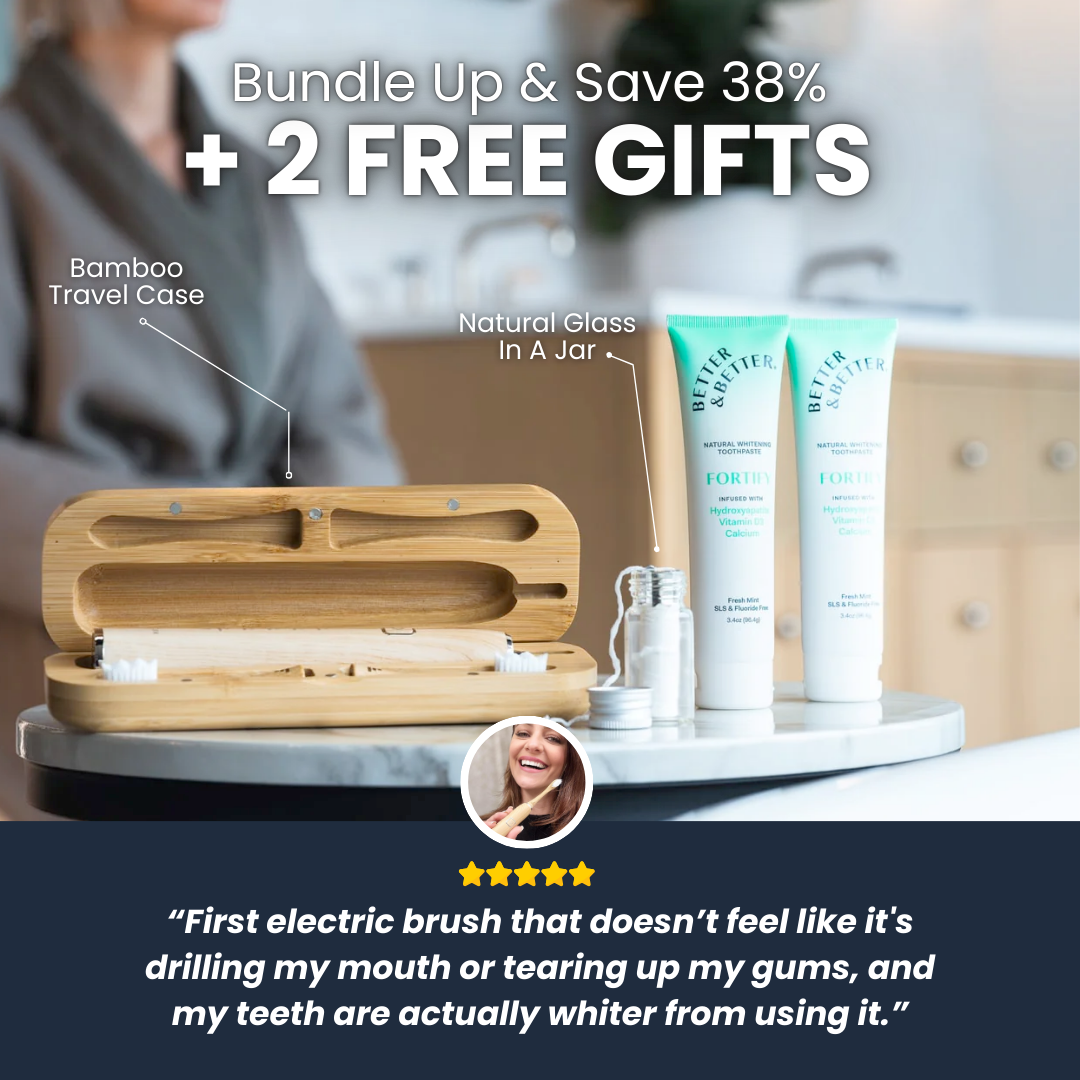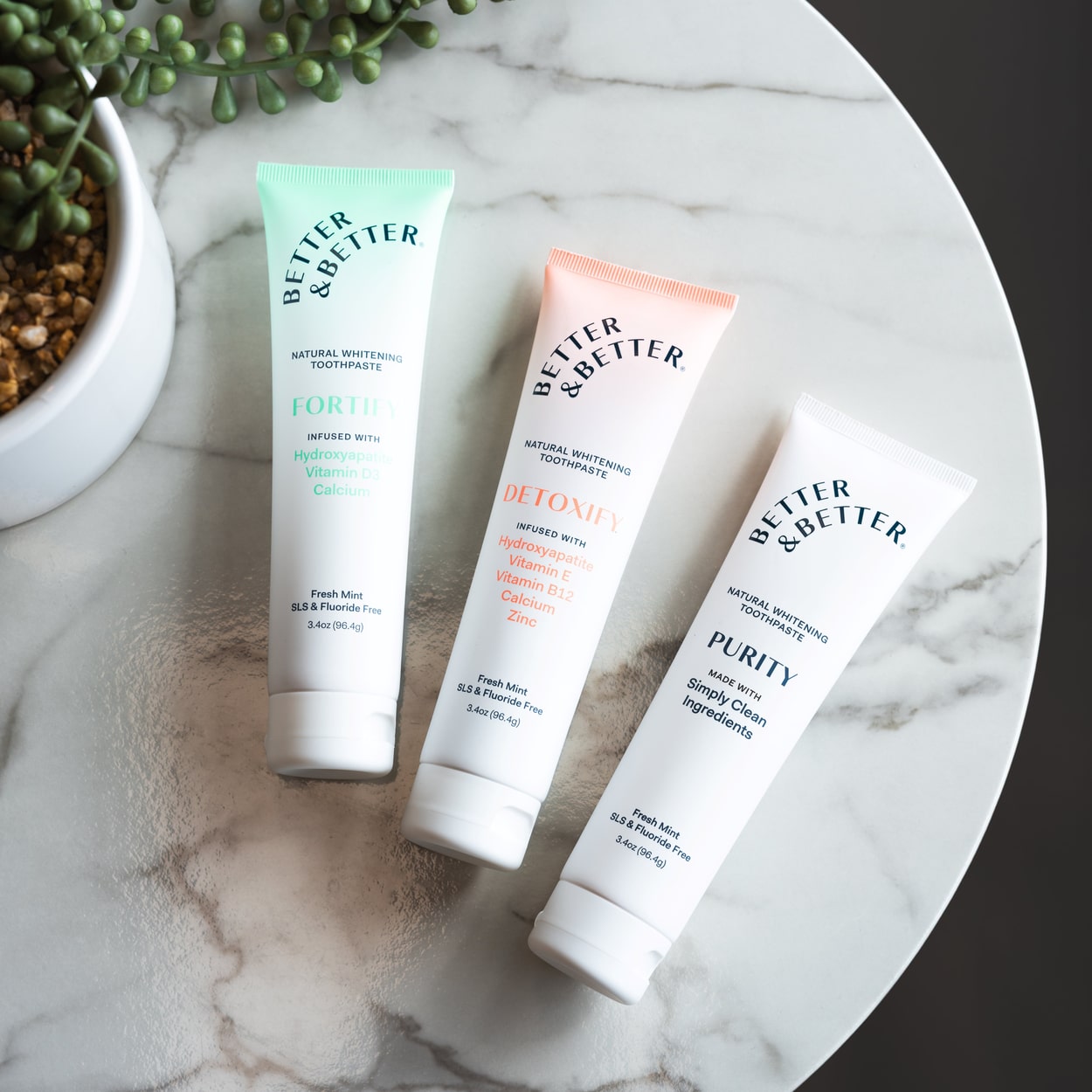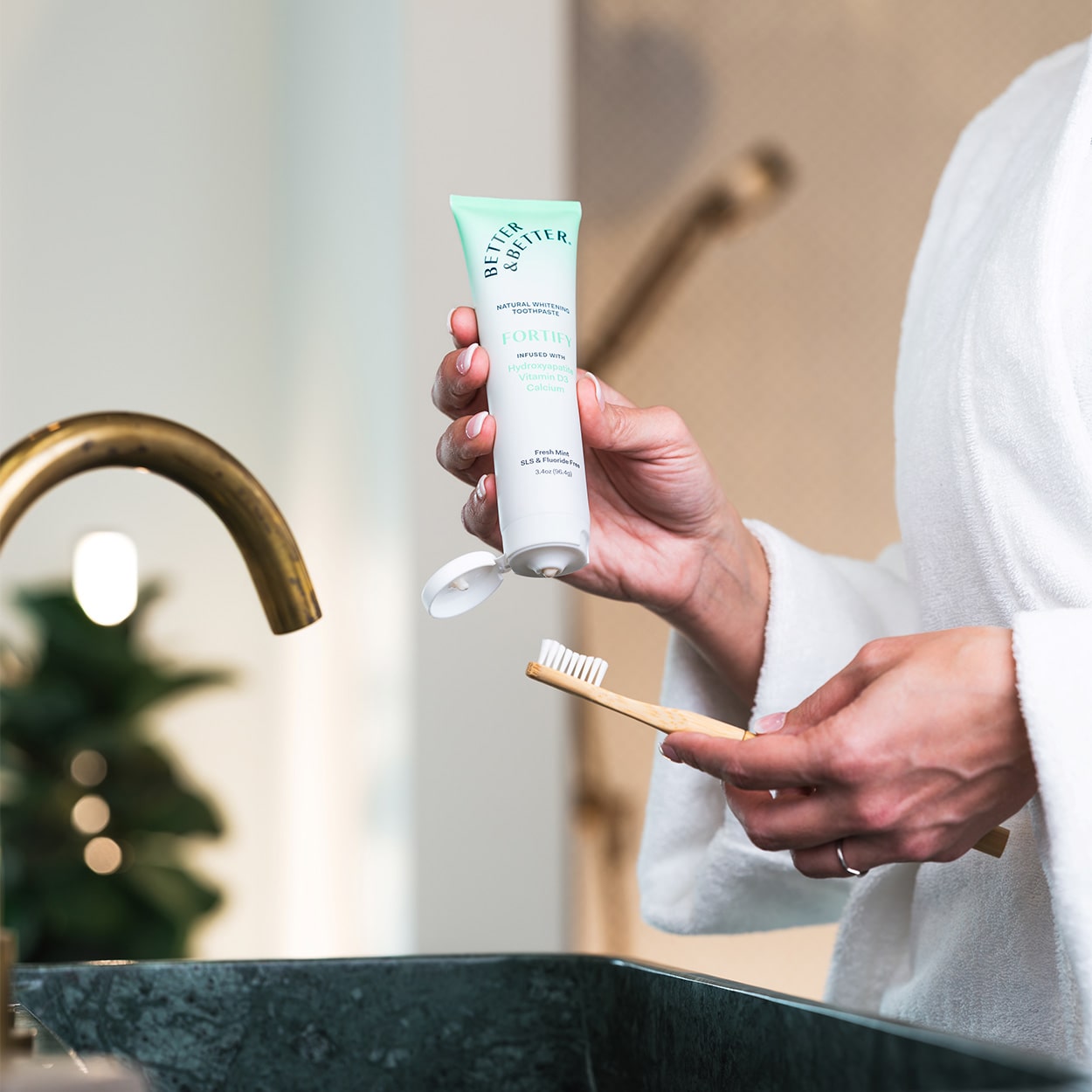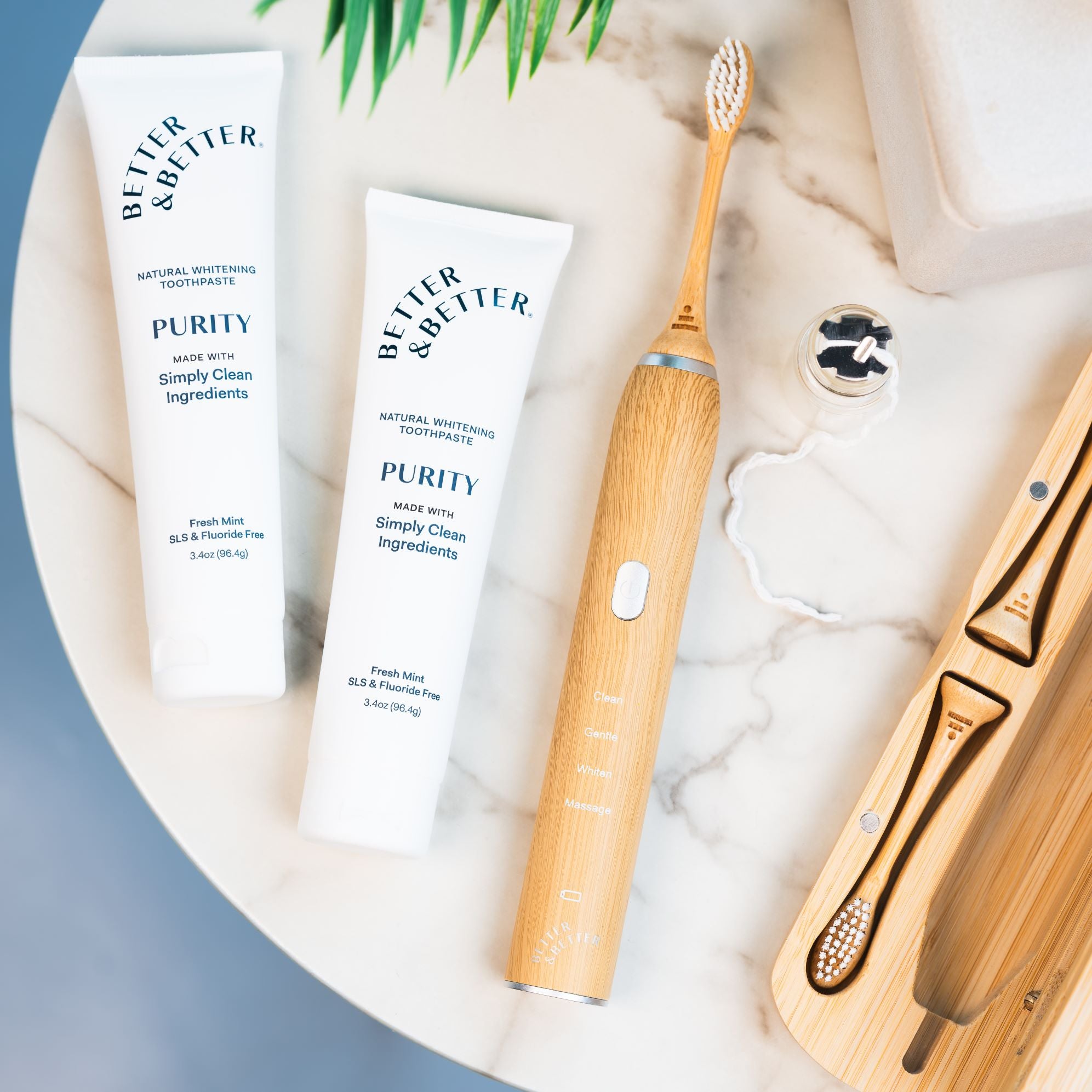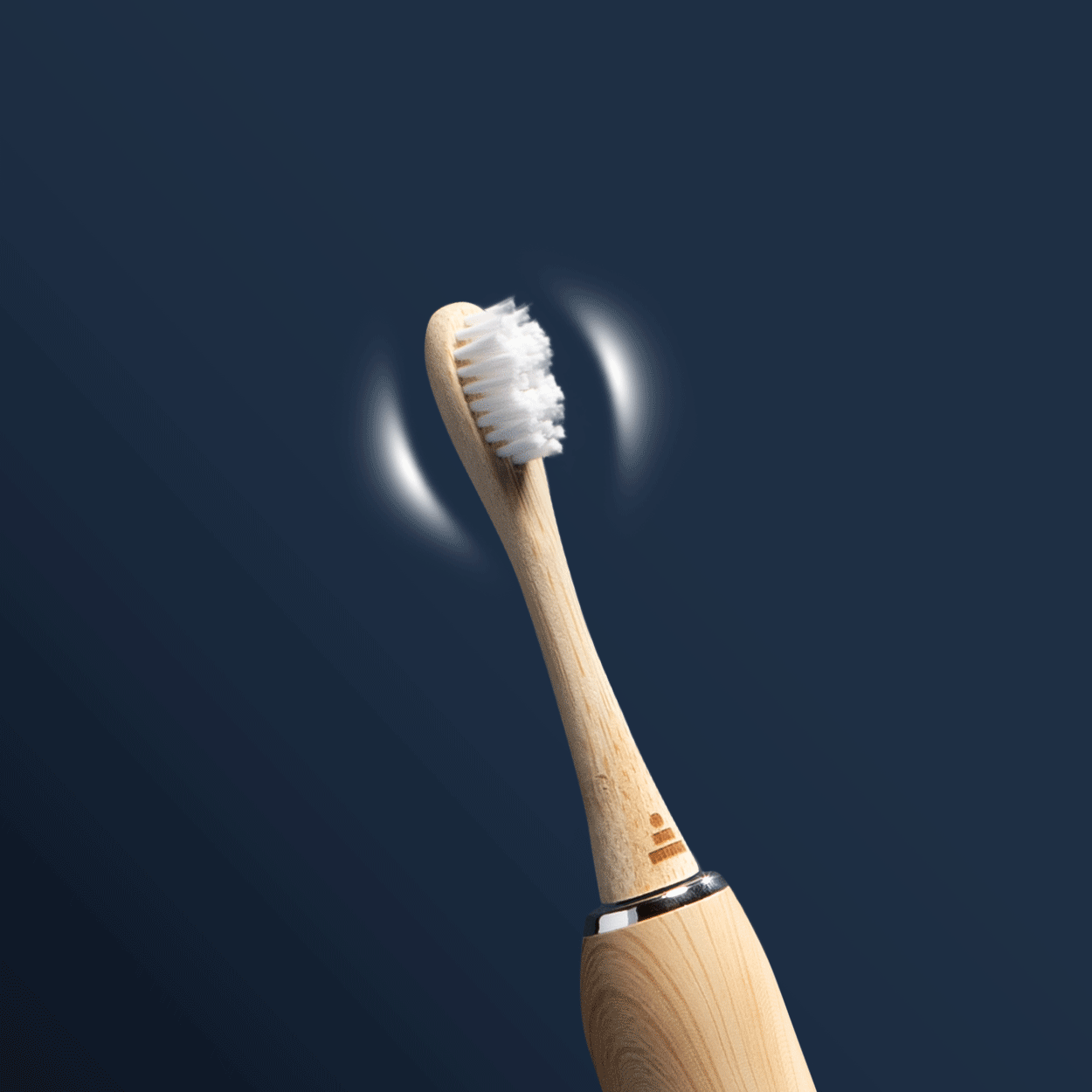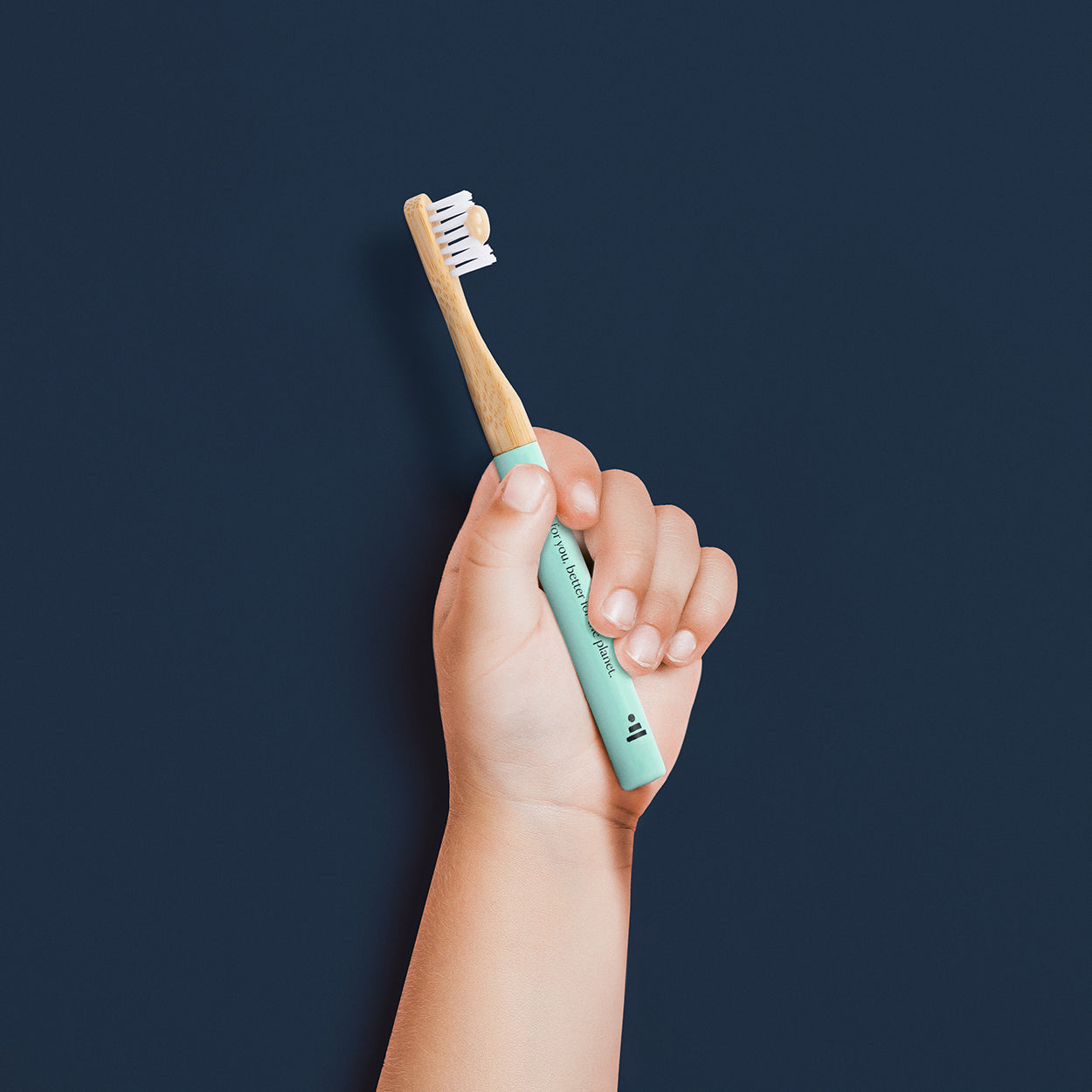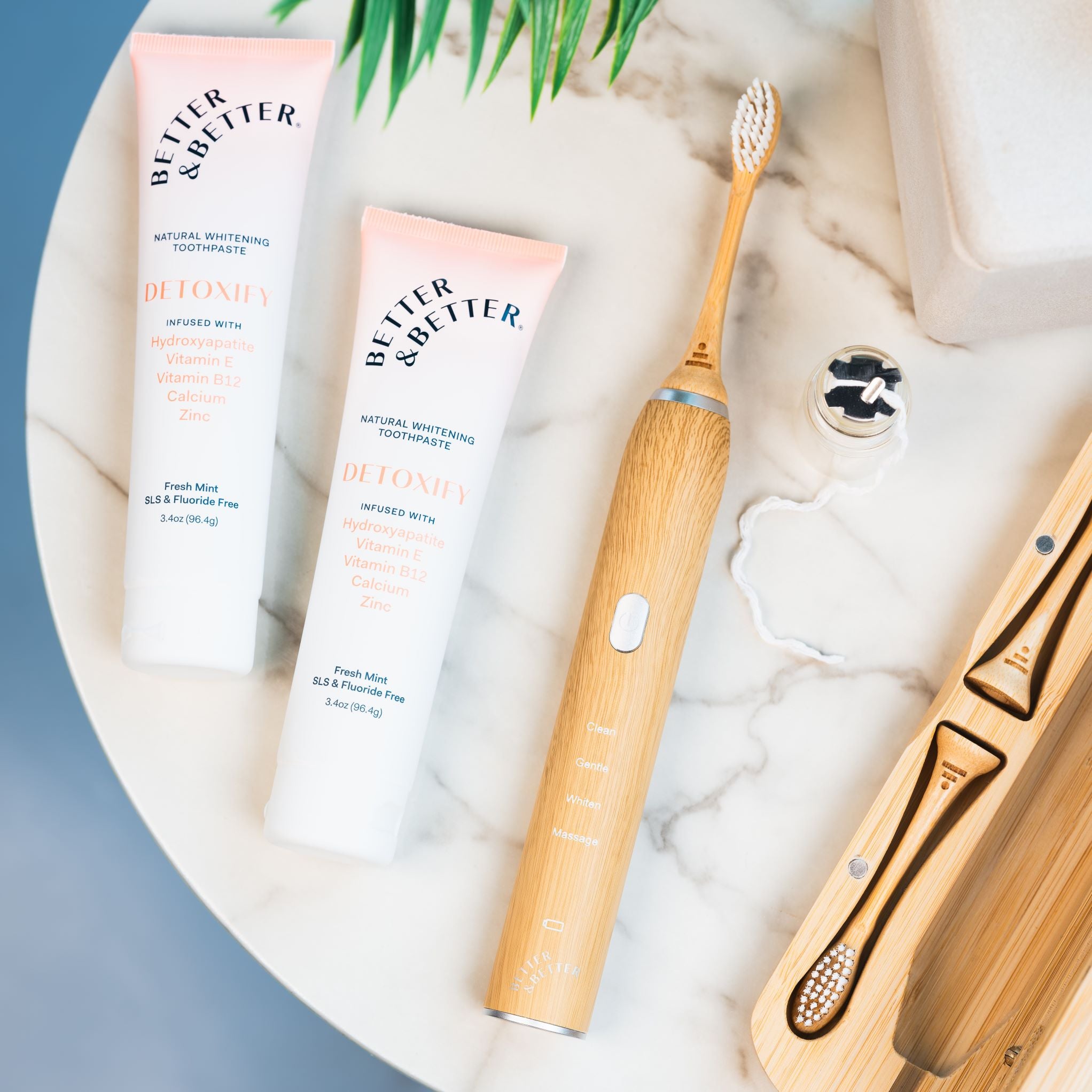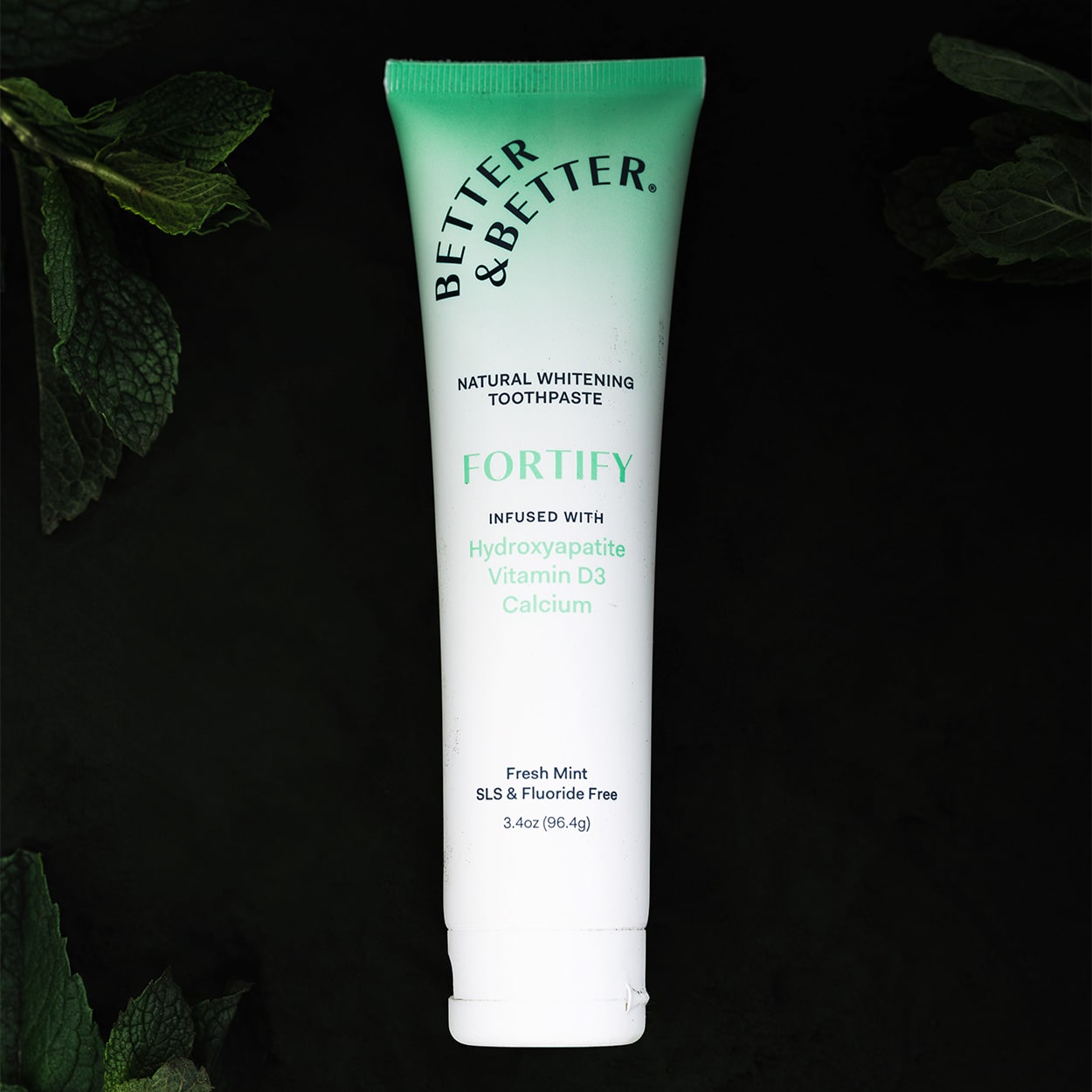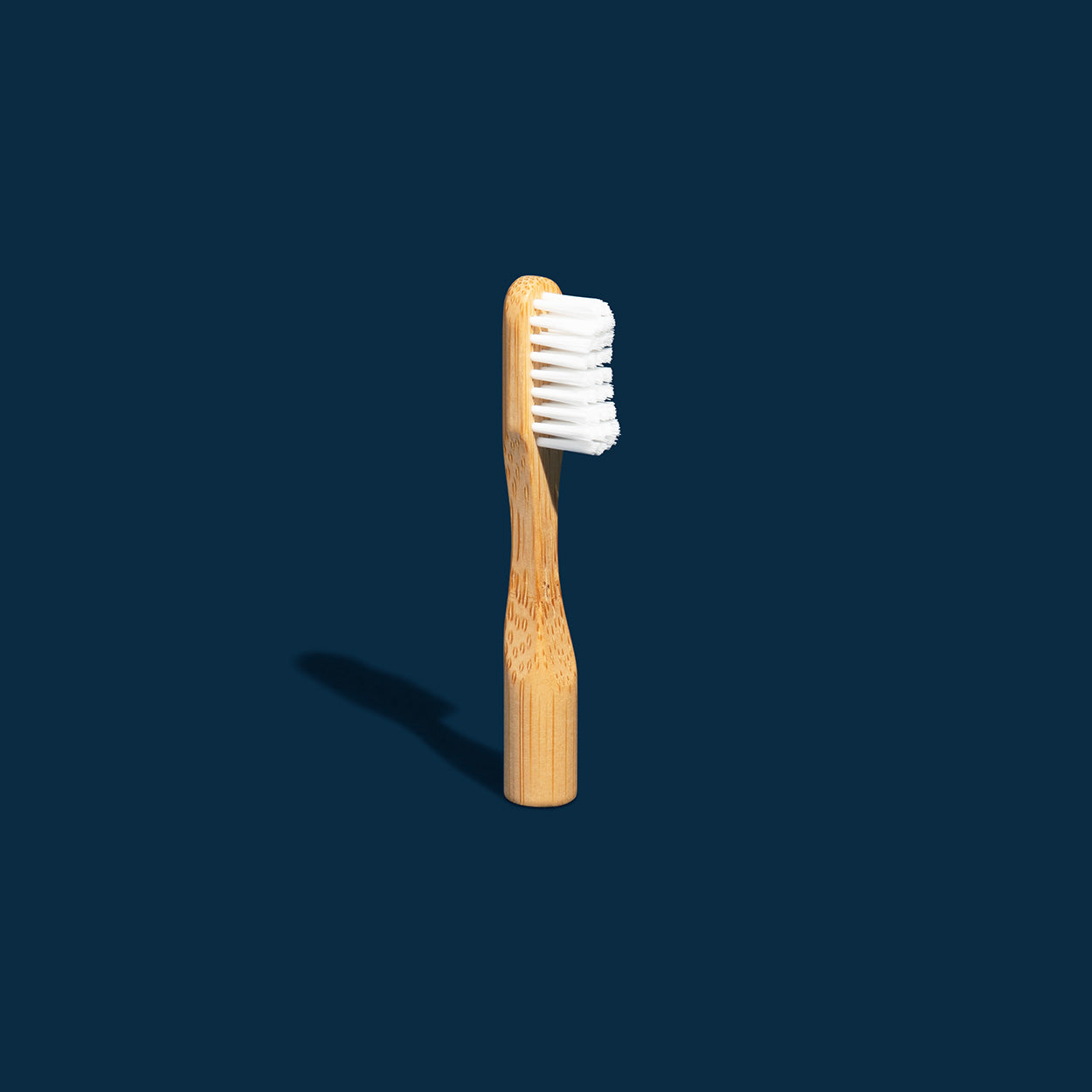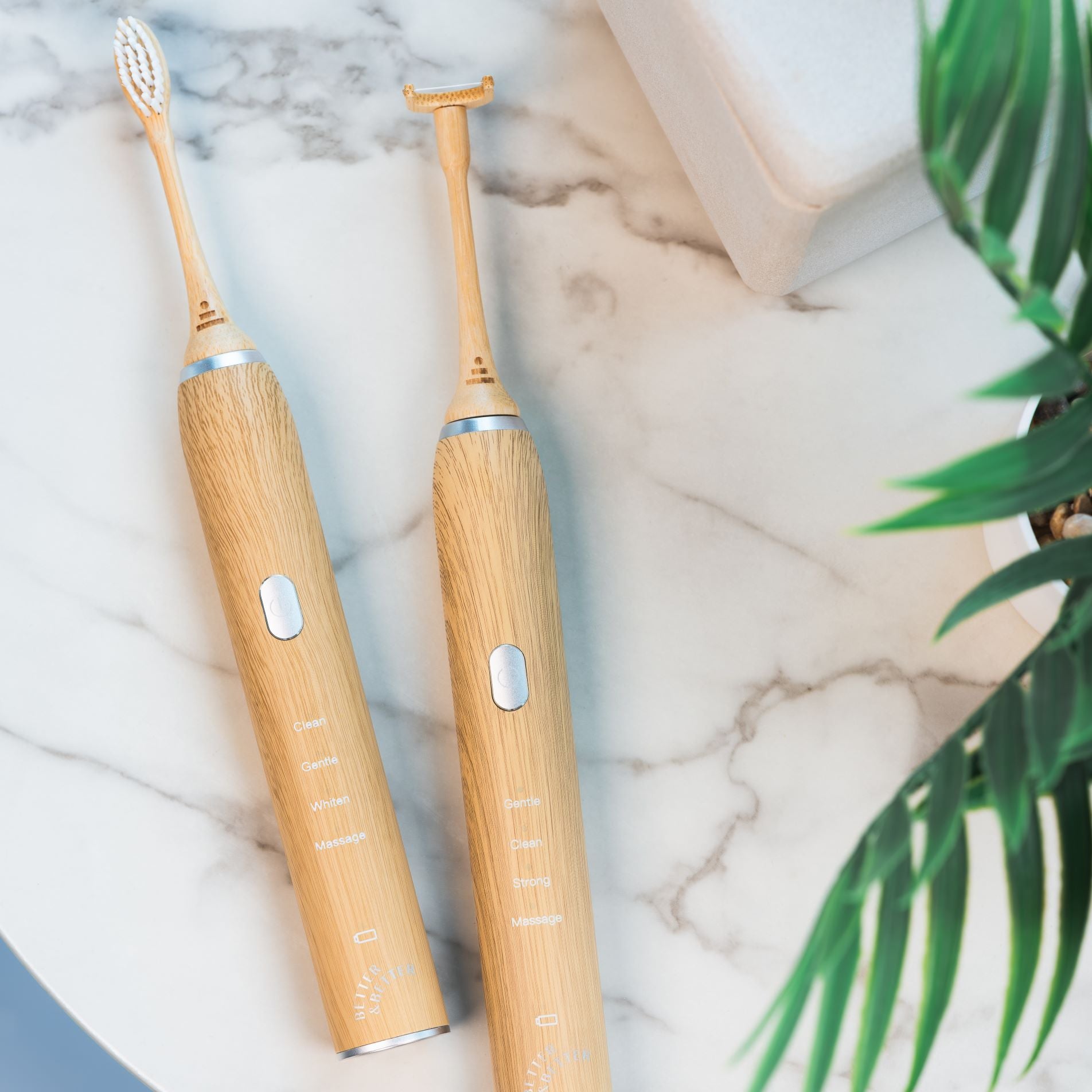When you think of oral health, pearly white teeth might be the first image that pops into your mind. But as we’ve discussed, taking care of your teeth and gums benefits your whole body—not just your mouth.
Your oral health is a strong indicator of your overall health, and it depends heavily on the nutrients you get (or don’t get).
Vitamins are the foundation of strong teeth and healthy gums. While brushing and flossing play a key role in your dental health, they can’t compensate for a lack of nutrients. In fact, some nutrient deficiencies can raise your risk of gum disease, tooth decay, and even bad breath (more on that later).
Read on to discover the best vitamins for your teeth and gums, how much of each you need, and how to incorporate them into your diet.
1. Calcium
Calcium is the most abundant mineral in your body. It’s especially important for strong teeth because it bolsters your enamel—the tough, shiny outer layer of your teeth.
Unlike broken bones, damaged tooth enamel doesn’t repair itself. Accordingly, you need to preserve your enamel to avoid sensitive, discolored, and cracked teeth.
How much calcium do you need? Adults 18-50 years old should aim to get 1,000 mg of calcium every day. Adults 51 and older need 1,200 mg.
Best sources of calcium: According to Mayo Clinic, one of the best ways to get calcium is through dairy products like milk, yogurt, cheese, and egg yolks. If you ditch dairy in favor of plant-based foods like nut milk, you may find it hard to get your recommended daily amount of calcium from food alone.
2. Phosphorus
Phosphorus is the second most abundant mineral in the body, and about 85% of it is stored in your bones and teeth, according to Harvard Health.
When combined with calcium, it forms crystalline calcium phosphate which strengthens your teeth as well as your jawbones.
How much phosphorus do you need? Adults need 700 mg of phosphorus daily.
Best sources of phosphorus: Red meat, milk, whole grains, fish, eggs, and other protein-rich foods are all good sources of phosphorus. Most people get enough phosphorus from the food they eat, according to the National Institutes of Health.
3. Vitamin D
Okay, so calcium and phosphorus are the dynamic duo for strong teeth—but there’s a not-so-secret ingredient you need to help your body absorb those minerals: vitamin D.
According to this 2020 study, nearly half of people don’t get enough vitamin D. That’s a big problem considering your body only absorbs 10-15% of calcium and 50-60% of phosphorus in vitamin D deficiency.
A lack of vitamin D has also been linked to periodontal disease, which can damage the gum tissue and lead to tooth loss if left untreated.
How much vitamin D do you need? Adults 18-70 need 15 micrograms (mcg) of vitamin D every day. Adults 71 and older should get 20 mcg per day.
Best sources of vitamin D: An easy way to get vitamin D is while you brush your teeth—our Energy Toothpaste contains 80% of your recommended daily dose of D3 (assuming you brush twice daily). You can also get vitamin D from fatty fish and foods that are fortified with vitamin D like orange juice and breakfast cereals.
4. Vitamin C
Vitamin C is an antioxidant that gets a lot of credit for protecting your immune system, but it also supports healthy gums.
Vitamin C helps your body create collagen: a fibrous protein that strengthens the connective tissues in your gums. If you have gingivitis or bleeding gums, a vitamin C deficiency could be the culprit.
How much vitamin C do you need? The National Institutes of Health recommends different daily intakes of vitamin C based on your age and health conditions. Here’s a quick breakdown:
- Adult women: 75 mg
- Adult men: 90 mg
- Pregnant women: 85 mg
- Breastfeeding women: 120 mg
- Smokers: add 35 mg to your recommended daily intake
Best sources of vitamin C: Citrus fruits, berries, peppers, avocados, and brussels sprouts are high in vitamin C. According to Harvard Health, vitamin C deficiency is rare in developed countries.
5. Vitamin A
Vitamin A does a lot of work to support your vision, immunity, and cell growth—but it’s also responsible for saliva production. Saliva rinses away leftover food particles and breaks down bacteria to keep your mouth clean.
A chronically dry mouth can lead to bad breath, cavities, and gum disease, so it’s important to keep your salivary glands active.
How much vitamin A do you need? The recommended daily intake depends on age and sex:
- Adult women: 700 mcg
- Adult men: 900 mcg
- Pregnant women: 770 mcg
- Breastfeeding women: 1,300 mcg
Best sources of vitamin A: Look for orange-colored foods like carrots, cantaloupe, sweet potatoes, pumpkin, and bell peppers.
6. Vitamin K
Your body needs vitamin K to build new dentin: the middle layer of the tooth that makes up the bulk of your pearly whites’ structure. Dentin isn’t as durable as enamel, so it’s prone to cavities and decay if it’s not taken care of.
How much vitamin K do you need? Adult women should get 90 mcg of vitamin K daily and adult men should get 120 mcg. Vitamin K deficiency is quite rare for adults, unless you have a medical condition that causes malabsorption of food.
Best sources of vitamin K: There are two types of vitamin K. The primary one is phylloquinone, which is found in leafy green vegetables. The other type, menaquinones, is present in meat and dairy products.
Dental Care Doesn’t Stop When You Stop Brushing
We all know the importance of taking care of your teeth and gums from the outside. But as you can see, it’s equally important to take care of them from the inside too—and that starts with a balanced diet.
Bottom line: brush twice daily and take your vitamins. Or better yet, do both at the same time with vitamin-fortified toothpaste.


